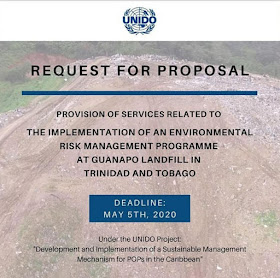Earth Day 2020
Earth Day is April 22 of every year and on April 22, 2020 we will mark 50 years of Earth Day
The theme for Earth Day 2020 is climate action. The enormous challenge — but also the vast opportunities — of action on climate change have distinguished the issue as the most pressing topic for the 50th anniversary. Climate change represents the biggest challenge to the future of humanity and the life-support systems that make our world habitable.
 The first Earth Day in 1970 is credited with launching the modern environmental movement, and is now recognized as the planet’s largest civic event.Earth Day continues to hold major international significance: In 2016, the United Nations chose Earth Day as the day when the historic Paris Agreement on climate change was signed into force. Climate change and global warming, species extinction and biodiversity loss, poor waste management leading to pollution of the air, land and water are some of the issues affecting every living creature on planet Earth.
The first Earth Day in 1970 is credited with launching the modern environmental movement, and is now recognized as the planet’s largest civic event.Earth Day continues to hold major international significance: In 2016, the United Nations chose Earth Day as the day when the historic Paris Agreement on climate change was signed into force. Climate change and global warming, species extinction and biodiversity loss, poor waste management leading to pollution of the air, land and water are some of the issues affecting every living creature on planet Earth.
Earth day is the day designated to remembering the beauty and majesty of this planet, but it is also a call to arms. Everyday we are faced with choices that affect the world beyond our view with repercussions that extend far beyond our life spans. This earth day and everyday after help work towards a healthier planet Earth in small and big ways. Recycle, reuse and reduce because our waste stays here with us, consume less energy and don't waste water. Say goodbye to one use plastics and find the alternatives that work for you, because it is out there.
Take our #EarthDay quiz using the link below and share your results with us via INSTAGRAM (@eppdtt)
What can I do for Earth Day?
For more information on what you can do to have save our planet visit https://www.earthday.org


















